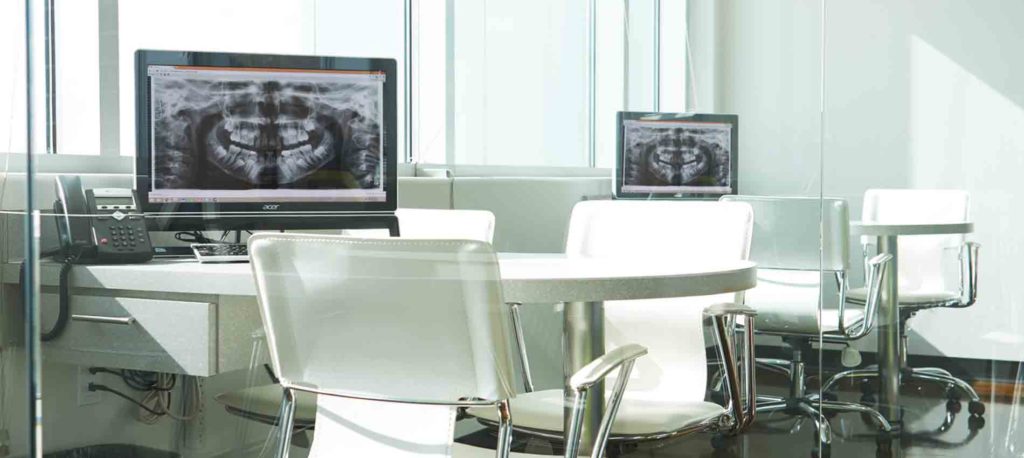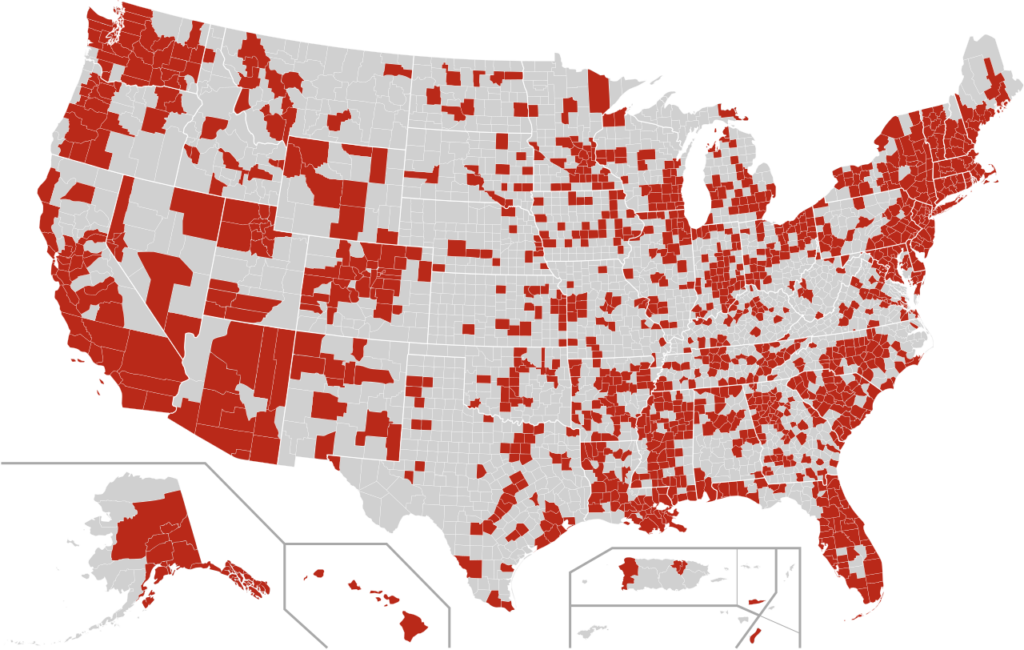Deciding whether to move to a new space or to renew your current lease can be a challenging decision for even the most experienced business professional. It can also have a huge impact on your business.
Ideally you have at least 18 months before your lease is expiring. Creating a plan of action well in advance is the key to making a sound business decision and avoiding costly production interruptions. If you delay making your move-or-renew decision, you run the risk of becoming a “captive tenant,” which is how most landlords view medical tenants.
Don’t delay. The risks of waiting are significant.
- Loss of Negotiating Leverage: If you delay action, you will end up paying rents above what you should pay. Failing to plan in advance around your lease means your landlord has total advantage – the “Captive Tenant” scenario. With no leverage, you are forced to make decisions among limited or even NO choices, without knowing what other options you may have gained either from your existing landlord or potential new landlords.
- Potential Financial loss: In a customer-focused business, your BIGGEST RISK is business interruption which can cause significant financial loss.
- Regret: You will end up being unhappy about not starting the process early. You will never know what your options truly were, and you will be stuck living with the misstep for years to come.
You can gain the upper hand, though, by using tricks of the trade to ensure you get fair and reasonable terms. Unless you are extremely dissatisfied with your current space it makes sense to keep as many doors open as possible, for as long as possible, to maximize your negotiating leverage.
Moving Your Practice
Moving your practice is just about as daunting as it sounds. You must undertake finding, designing, negotiating, and building out a new space while keeping your existing practice running. Your landlord is relying on this daunting hurdle for most of their leverage, and as such it is an option to seriously consider before entering into negotiations for a new lease on your existing space.
Timeline For Moving Your Practice
18 months is a good rule of thumb, but other factors may influence whether this window should be longer.
Here are a few guidelines for when you should start your process:
- Business Expansion: Is your business growing? In the coming years, do you see your space needs increasing or needing to be more flexible? Larger spaces can take a bit longer to find on the market, give yourself a few extra months to find the right space. 20 months is ideal.
- Considering New Construction: If custom construction is a consideration, your process should begin at least 24 months before your current lease expires, ideally 30-36 months.
- Existing Size: Is your existing office 10,000 square feet or larger? If so, you should absolutely consider owning your own real estate, whether you buy or build. There are many reasons this is true, but most importantly, there are simply fewer good options on the market for larger users like yourself. This process must start 24 months before.
- Market Conditions: If your market has rising rents and less available space, your process should start at least 18 months before your current lease expires to avoid becoming a Captive Tenant.
Planning to Move Your Practice
Understand the practical limits of a move so you can narrow your search. Consider the following:
- How far away can you realistically move and not lose your existing patients?
- Should you move closer to the bulk of your patients and primary referral sources?
- Plot out all patient addresses and determine where most of your patients are coming from prior to moving or renewing, understanding your target patient population is critical to a successful move.
- Does it make sense to talk to your referral sources about going in on a building together?
Renewing Your Lease
Renewals are a sure thing until they aren’t. If you and your landlord are content with the status quo your renewal will likely be fairly straightforward, especially if you start discussions early and can maintain as much leverage as possible.
The biggest risks to your lease renewal are a more attractive tenant getting in line for your space or a significant change in use at your property (like a new owner who wants to redevelop the property). Keeping in friendly and frequent contact with your landlord and property manager while always paying rent on time can keep you out in front of any looming changes.
If your landlord does not have a backup tenant lined up for your space they usually have a significant financial incentive to sign a long term lease to keep you in your space. You have the best chance of getting a fair deal on a renewal if you use a broker familiar with your market who can use your leverage to your advantage while removing landlord leverage by going to the market for alternative options.
Tenant Improvement Allowance on a Renewal
For renewals longer than 5 years you may be able to get a Tenant Improvement Allowance from the landlord to do a few upgrades to your space.
Your Lease Expiration Plan
Here is a timeline for making a strategic decision about moving vs. renewing when faced with a lease expiration:
- 24 Months Prior to Lease Expiration
- Meet with a healthcare-focused agent and begin answering the following questions:
- Where are my patients coming from? (If possible, have your agent map your patients and referral sources.)
- Should I move to a new location? How would my business benefit from moving?
- How far could I potentially move from my current location? Is there an area I could move to and capture more business? What are the natural boundaries that I shouldn’t move across – freeways, major roads, etc.?
- Should I consider moving and owning my own space? Discuss the costs and structure associated with owning with your agent.
- What does a move really look like in terms of costs for my practice? Your healthcare-focused agent should be able to give you a good idea.
- Meet with a healthcare-focused agent and begin answering the following questions:
- 18 Months Prior to Lease Expiration
- Hire a healthcare-focused agent to review your lease in depth.
- The agent should be able to review the lease knowledgeably and explain your rights and how they affect your business.
- Have your agent perform a thorough market survey to find all available options that meet your criteria for a new space.
- Hire a healthcare-focused agent to review your lease in depth.
- 17 Months Prior to Lease Expiration
- Discuss the available options and discuss the best scenario for you and your practice: should you move or renew?
- What are the estimated costs of moving?
- How will it impact your staff and patients?
- Discuss the available options and discuss the best scenario for you and your practice: should you move or renew?
- 16-13 Months Prior to Lease Expiration
- Have your agent submit multiple proposals to and negotiate with various landlords.
- Critical: your agent must be able to tell your current landlord with sincerity that you are negotiating other proposals.
- Have your agent submit multiple proposals to and negotiate with various landlords.
- 12 Months Prior to Lease Expiration
- Make a final decision: move or renew.
- If moving, work with other consultants to determine your best options.
- Create a plan of action.
- 11 Months Prior to Lease Expiration
-
- Activate plan of action: execute early renewal or move (MUCH less stressful: no risk of costly business interruption).
Moving vs. Renewing: The Bottom Line
Start the move vs. renew decision-making process early! Ensure you are aware of all your options, have time to make strategic decisions, and avoid the worst-case scenario of business interruption.
[ls_content_block id=”4971″]



